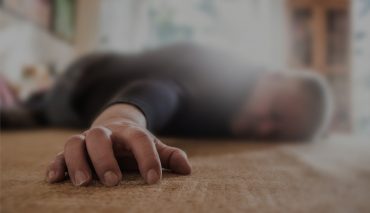Practice Makes Perfect in Sudden Cardiac Arrest Response
How does practice make perfect when it comes to helping in an emergency?
You might have heard of Malcolm Gladwell’s rule that it takes 10,000 hours to gain mastery of a skill. That neatly-rounded number has since been debunked numerous times, including by a 2019 replication of Gladwell’s original study. It was even described by the author of the original study, Anders Ericsson, as ‘a provocative generalisation’.
According to Ericsson, the key to mastery is not the time spent, but the quality of practice that matters.
Good quality practice
Ericsson found that practice can only make perfect when time is spent focusing on improving specific tasks or skills. He called this approach Deliberate Practice.
Deliberate practice involves a goal with the intention to improve, often set by an expert or tutor. Then it’s about remaining focused on the task, and obtaining immediate feedback to recognize what needs to improve.
The power of deliberate practice to develop mastery lies in neuroplasticity, or the brain’s ability to change.
Whenever you learn something new, your brain forms new neural connections. The more you practice something accurately, the more those neural connections are reinforced. This strengthens the neural pathway, and speed of recall for that skill increases.
With regular quality practice over a period of time, muscle memory forms and skills become automatic. This is referred to as procedural learning.
One great example of procedural learning is development of proficiency at playing a musical instrument – say, a violin.
In the beginning, every action requires conscious effort – how to hold the bow, how to tune the instrument, where to place your fingers on the strings.
With repetition and reinforcement, muscle memory forms, and you no longer have to pay conscious attention to every step in the process.
With this procedural memory, you automatically hold the bow correctly when you pick it up, know how far to turn the peg to tune the string, and place your fingers on the string in the right place without conscious effort.
Procedural memory in medical emergency response
Developing procedural memory through practice is especially valuable when responding to a medical emergency.
A medical emergency is often unexpected, and brings with it high stakes. It’s no surprise that responders experience a high level of stress.
A recent review of studies exploring stress and CPR found that higher stress levels correspond to poorer quality resuscitation activities.
This is expected. Stress reduces our rational thinking capacity, which blocks us from remembering facts (declarative memory).
When this happens, we fall back on habit and procedural memory – to respond to an emergency medical situation. Repetition of the tasks and skills you need to respond to a medical emergency increases the likelihood that you’ll be able to depend on procedural memory and respond effectively.
RELATED ARTICLE: Training to think fast, act faster
We also know that regular refresher training for CPR works.
One study found that amongst nurses provided with one CPR training session in 12 months, trainee compressions deteriorated over time.
Amongst nurses provided with a six-minute CPR training session every month, however, the quality of trainee compressions was maintained and even improved.
CPR training amongst community bystanders
Regular, quality training doesn’t just benefit medical responders.
Training in CPR and use of an automated external defibrillator (AED) helps community members to overcome the fear and uncertainty regarding what to do when faced with a medical emergency, increasing their confidence and willingness to respond.
RELATED ARTICLE: Are you ready to help?
This confidence can diminish over time. Research suggests that confidence and willingness to act using CPR and AEDs can be maintained through regular refresher training.
More frequent re-training has been found to produce the best recall and performance. Resource limitations may make it difficult to do frequent hands-on training to develop procedural memory, however – which is why access to free online CPR awareness programs is so valuable.
To overcome the resource barrier, some interesting alternatives to hands-on refresher training have been explored. One study sent intervention participants SMS reminders to watch a brief CPR refresher video. The researchers found higher levels of willingness, confidence, and skill amongst the people who received reminders compared with people who did not.
Watching a video of someone doing CPR and using an AED is a useful reminder of the steps to follow.
Although video can be great for reminding us what to do, however, it does not build procedural memory. Developing procedural memory will serve us much better when faced with the stress of a medical emergency.



